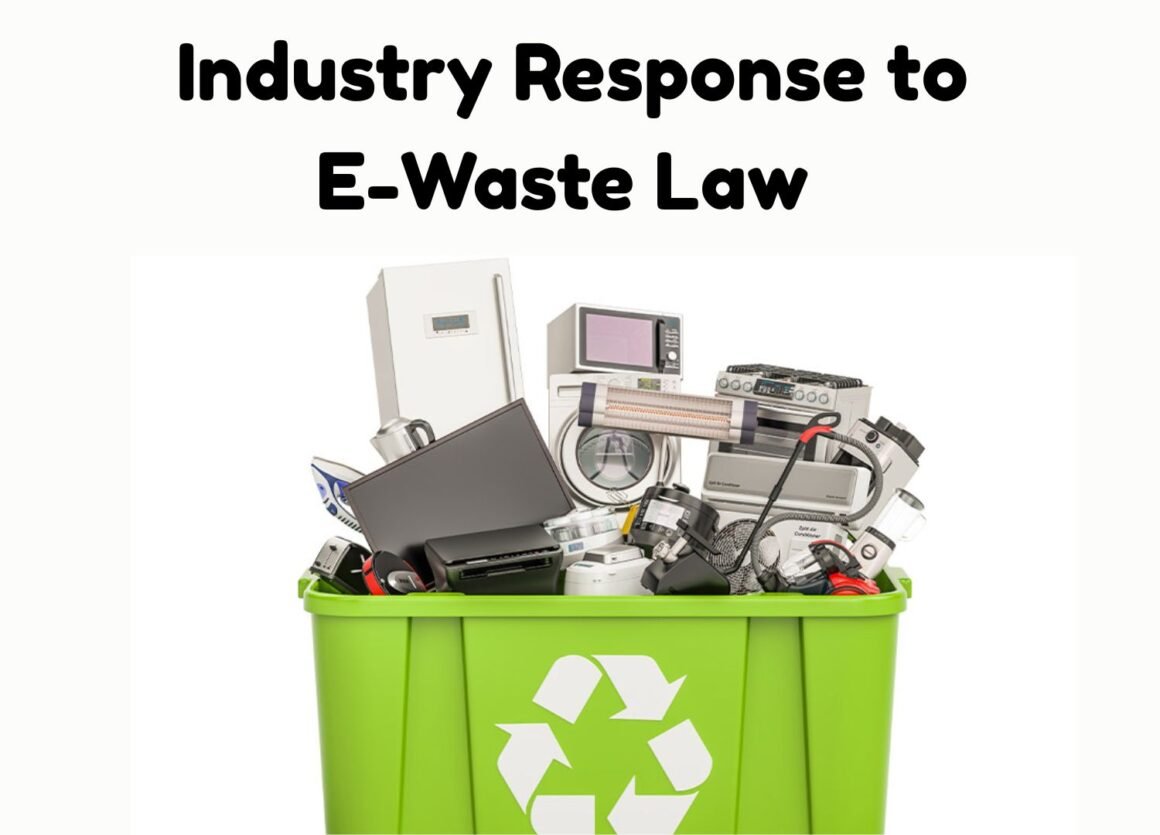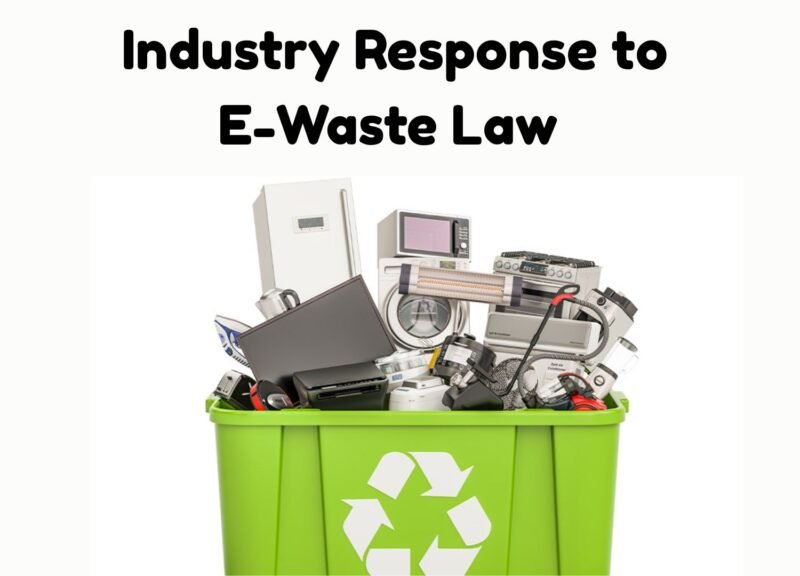The Industry Response to E-Waste Law is facing increasing pressure from governments to take responsibility for the environmental impact of electronic waste (e-waste). As nations strengthen Extended Producer Responsibility (EPR) laws and ban informal recycling practices, technology manufacturers and consumer electronics brands are reacting strongly. Some welcome regulatory clarity and environmental accountability, while others criticise the growing compliance burden.
This article captures real industry perspectives—what electronics companies support, oppose, and demand from e-waste laws.

The Industry Pushback: “Compliance Costs Are Too High”
Large multinational electronics companies argue that new e-waste policies are increasing operational costs without offering practical implementation support. According to industry legal filings and media reports, companies complain that:
- Recycling targets are unrealistic in countries with weak waste infrastructure
- Minimum recycling costs mandatorily paid to recyclers are too high
- Independent recyclers are few and often unverified
- Governments are shifting environmental risks entirely onto manufacturers
Legal Resistance from Big Brands
In countries like India, where e-waste law enforcement has intensified under E-Waste Management Rules 2022, major global companies have gone to court. Legal challenges by Samsung, LG, Daikin, Carrier, and Whirlpool revolve around accusations that the government is forcing unfair pricing and strict targets without consultation.
These companies argue that recycling cost floors distort free market competition and make compliance expensive.
Concerns Over “Unrealistic Targets”
Several electronics firms say that governments are setting unrealistic annual EPR targets—even in countries where formal e-waste collection is less than 30%. Companies argue that targets should be phased and practical.
Industry associations have also requested that EPR deadlines and penalties be aligned with ground realities.
Demand for Clarity in Law and Portal System
Many electronics companies say e-waste rules lack operational clarity. They specifically demand:
- Clear definitions for reuse, recycling, and co-processing
- Transparent and fraud-free EPR certificate trading
- Strong audits to prevent fake recyclers from misusing the system
- Digital clarity on EPR portal rules and compliance calculations
Companies argue that without transparency, compliant companies are penalized while fraudsters exploit loopholes.
Positive Voices: “Regulation Creates a Circular Economy”
Industry Response to E-Waste Law. Some forward-looking electronics brands support strong laws, saying that:
- E-waste laws promote responsible innovation
- Recycling saves precious metals like gold, copper, and palladium
- Legal enforcement reduces environmental damage
- Cleaner recycling systems improve brand image and sustainability ranking
These companies believe circular economy compliance will become a key business advantage.
Shift Towards Eco-Friendly Design
Electronics companies admit the biggest long-term impact of e-waste law will be eco-design. They are:
- Reducing hazardous materials in products
- Making spare parts available longer
- Designing products for easy repair and disassembly
- Introducing refurbished product programs
This shift aligns product design with the “right to repair” and circular economy strategies.
Industry’s Key Demands from Regulators
To summarize, electronics companies want:
- Balanced and practical compliance timelines
- Recognition of reuse and repair as part of EPR
- Support for formal recycling infrastructure
- Protection from fraud in EPR certificate markets
- Consultation before policy changes
Conclusion: Industry Response to E-Waste Law
Industry Response to E-Waste Law recognises the environmental need for e-waste regulation—but they want fair implementation. While industry resistance is strong, global policy trends show that stricter compliance is inevitable. The future will depend on how well governments and companies collaborate to build a transparent, fair, and sustainable e-waste ecosystem.
FOR MORE BLOGS – beyondthepunchlines.com

 Add to favorites
Add to favorites







